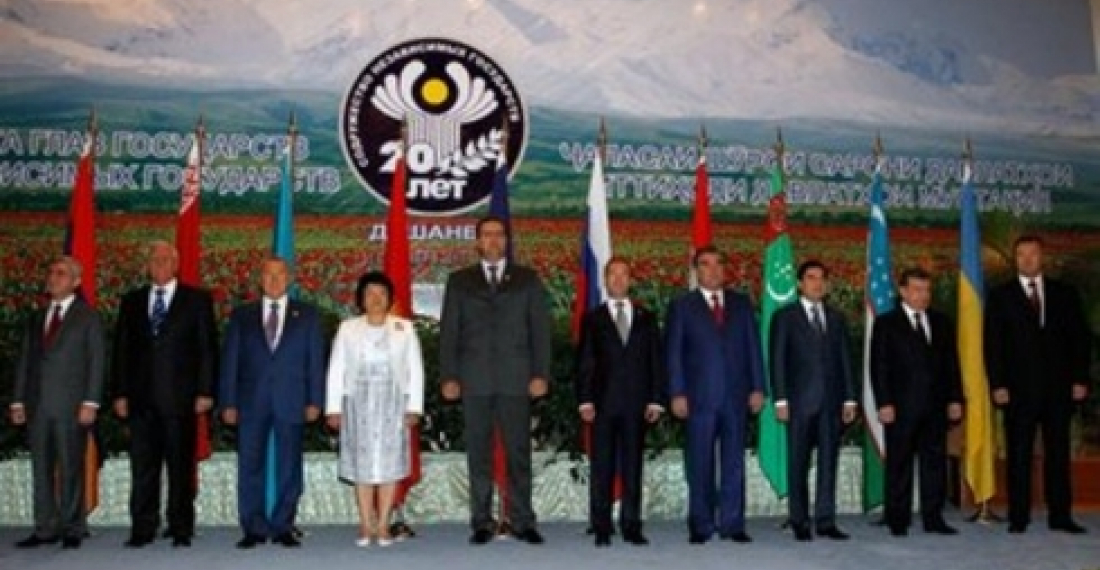The leaders of former Soviet Republics are meeting in the Tadjik Capital in what was supposed to be a celebratory summit of the international grouping. But the absence of the Presidents of Azerbaijan, Belarus and Uzbekistan is casting a shadow on the meeting.
The meeting is taking place behind closed doors to allow the leaders to consider the future of the CIS amidst mounting criticism of its effectiveness. A Russian analyst, Innokenty Adyasov, who is a leading consultant on the expert council of the State Duma Committee for CIS Affairs wrote on the website of RIA Novosti this week "This year, the CIS turns 20, and it's looking shabby for its years. Most people in the CIS do not understand this bureaucratic organization's mission at all. It is more a discussion club than a coordinating body".
Having been an ineffective body to co-ordinate economic and trade issues, as well as political and security issues, the CIS further plunged into crisis as a result of the war between two of its members - Russia and Georgia, in 2008. The CIS was completely incapable of preventing the war, stoping it once it had started, or helping to mend Georgian-Russian relations afterwards. Georgia subsequently left the group.
For it to be effective the CIS needs to lower its ambitions, stop signing agreements that afterwards remain unimplemented and become an embarassment, and focus on areas of common interest. Russia also needs to redefine its role in the grouping and start acting as an equal, rather than a first amongst equals. In the end however it is always going to be the case that the past Soviet experience is not enough to make the group an effective organisation, and deeper co-operation between some of its members will be more effective in other formations, such as the CSTO in the military and security sphere, and EurAsEc - the customs union, in the economic sphere.
This comment was prepared by the commonspace.eu political editor
Photo: The Heads of State of the CIS countries in Dushanbe (courtesy of www.kremlin.ru)







